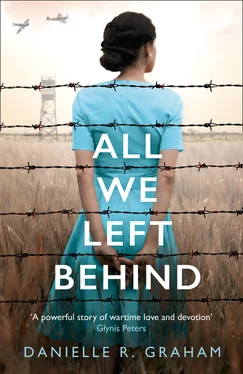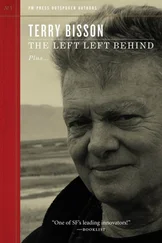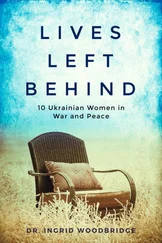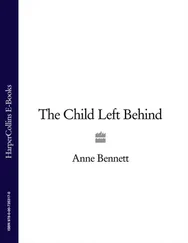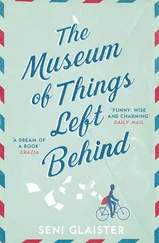‘ Entschuldigung ,’ she said.
I didn’t know what it meant, but it sounded apologetic. She began a full conversation with me, of which I didn’t understand a word. She smiled a lot and even laughed a few times, not minding that I didn’t say anything in response. And when I smiled, she gently pressed her finger to the dimple on my left cheek.
‘ Gutaussehender .’
I tried to repeat the word and it made her laugh. Her friendliness was appreciated, and the only thing that made being injured, all alone in a foreign country, and in the custody of Nazis bearable. She helped me slide off the examining table into a wheelchair, then wheeled me over uneven wood-plank floors into a rectory that served as the dormitory. About thirty men reclined on iron-frame cots, playing cards or reading. Some were asleep. She placed me in front of an empty cot next to another Canadian pilot. I didn’t know him, but the familiar uniform folded up on a chair next to his bed gave me a sense of comradery with the stranger. He was asleep, so I tried to be quiet and not disturb him.
The nurse tenderly helped me move from the wheelchair to the lumpy and compressed cotton mattress and then assisted me to change out of my tattered uniform. She turned her head politely so I could slip into a thin hospital gown and then under the sheet. She must have noticed me wince from the weight of the top wool blanket, because she folded up the bottom of the bed linens to leave my feet exposed.
‘ Danke ,’ I said. I’d heard Rory say it to his cousin before, so I knew it meant thank you in German.
She nodded to accept the gratitude before she left the dormitory.
At lights out, the guard left his post by the door to do a bed check. The heels of his boots clicked against the wood floorboards and echoed through the dormitory – the sound nightmares are made of. He snaked his way through the rows of cots. When he reached my row, the beam of his torch landed on my face, forcing me to squint.
‘ Schlafen ,’ he grumbled.
I had no idea what that meant so I ignored him. I was still rattled from the dogfight and in too much discomfort to sleep, so I just stared at the ceiling and thought about home.
‘Sleep,’ he growled in English.
Truth was, I wanted to be asleep. Desperately, to make the night pass faster. But I couldn’t get the dreadful images of Gordie’s airplane going down out of my mind. The disturbing stench of burned bodies also hadn’t left me. The guard kept the light beamed in my eyes so I glared at him. His eyebrows angled together in contempt as he lifted his arm. The torch slammed against my bandaged right ankle, and my entire body contorted from a dynamite-like explosion that travelled up my leg and halted my heart for a beat. I would have screamed if the air had not been completely sucked out by the blow. Instead, I writhed silently as my muscles braced rigidly against the mattress to fight the torment.
‘ Schlafen! ’ he shouted.
I winced and turned my back to him.
If my mother had known I was in pain she would have sat on the edge of my mattress and rested a nurturing hand on my shoulder – that is, if she weren’t hysterically inconsolable over witnessing the damaged state I was in and the rudimentary medical treatment I had been provided. But, of course, she wasn’t with me and I wasn’t home. I was all alone in hostile territory. And yearning for a comfort that wasn’t possible only made me feel worse.
The click of his boots didn’t start up again until I purposely slowed my breathing to feign sleep. Once he was gone, my body shook from the intensity of the anguish, or maybe the rage. My desperation to go home had never been worse. But that wish wasn’t going to come true. At least not any time soon. I knew that. And the grim reality pained me worse than the weeping burn wounds that left me skinless and raw.
23 August 1941
Dear Diary,
I greatly admire a person who is able to remain upbeat through heartbreaking hardship. Mrs Wagner tragically lost her husband of fifty-eight years. She has no other family and she is in frail health herself, yet she finds the strength to be genuinely pleasant to everyone she meets. If the wretched hardships of war reach us here on Mayne Island, I aspire to be the type of person who can grow bolder and build strength through dreadful adversity. I pray tragedy never happens. But, if ever faced with the choice to wallow in despair or embrace love, gratitude, and appreciation, why not clutch to the contentment and awe of our fleeting life as Mrs Wagner does?
Who am I fooling? I failed to even clutch the joyous contentment spinning around right in front of my face earlier today. Hayden asked me to dance and I put it off so long that we missed our chance. That is my problem in a nutshell. I think too much. I worry too much. I hesitate too much. Hayden never hesitates. Once he knows what he wants, he bravely takes action to bring it to fruition. Admittedly, some of Hayden’s actions are too impetuous and end in calamity, but I admire that he is fearless. I admire so much about him. Obaasan says if you wish to discover the most important purpose in your life, you need not look any farther than that which puts a smile on your face when you wake up in the morning. For me, that would be Hayden – without a doubt. This afternoon when Hayden and I meet, I vow to be more spontaneous and daring.
Chi
Happy with Chidori’s promise to accompany me on a walk after the fair, I wandered down the road towards Miner’s Bay to meet my father and Chidori’s uncle Massey at the wharf. The dock was located a short walk down the hill from the fairgrounds, past the general store. A lot of folks were already mingling around the benches that encircled the big old maple tree. Most of the people had come over from either the other nearby islands or Victoria to attend the fair and to eat lunch at the Springwater Lodge. The rest of the crowd were Mayne Islanders eager to get caught up on gossip from the other islands and the mainland.
When my father wasn’t planting or harvesting our crops, he worked for the Setoguchis. He’d worked for both Chidori’s father in his tomato and cucumber greenhouses, and for her uncle Massey on his seiner fishing boat since before I was born. I’d been helping on the boat every summer since I was ten. They were due any minute to arrive with a load of salmon to sell from the dock, so I hopped up and sat on the wood railing to wait.
Massey hadn’t always been a fisherman. He had graduated university with an architecture degree, but only people on the voting list could register to practice as an architect, and the government denied Japanese Canadians the franchise. So instead, Massey became a successful general contractor in Vancouver. He eventually invested in commercial real estate. During the Roaring Twenties he had taken a chance on the wheat stock market, which multiplied in value when Canadian wheat exports went international. Massey had a gut feeling the bubble would eventually burst, so he monitored the volatility and sold all his stocks six months before the entire stock market crashed in ’29. He was one of the few investors who hadn’t lost everything, and having cash on hand meant that – during the terrible economic depression that followed – he was able to buy several buildings and one entire city block at below-value bargain depression prices. But then tragedy struck him in a different way. Sadly, his wife died giving birth to their son. The baby unfortunately died too. He moved back to Mayne Island to escape the heartbreaking memories and live the simple life of a fisherman, but he still owned the real estate in the city and profited from it generously. Most local islanders didn’t know how wealthy he was because he lived modestly in a small cabin near the greenhouses on Chidori’s father’s property, and he wasn’t pretentious in any way.
Читать дальше
